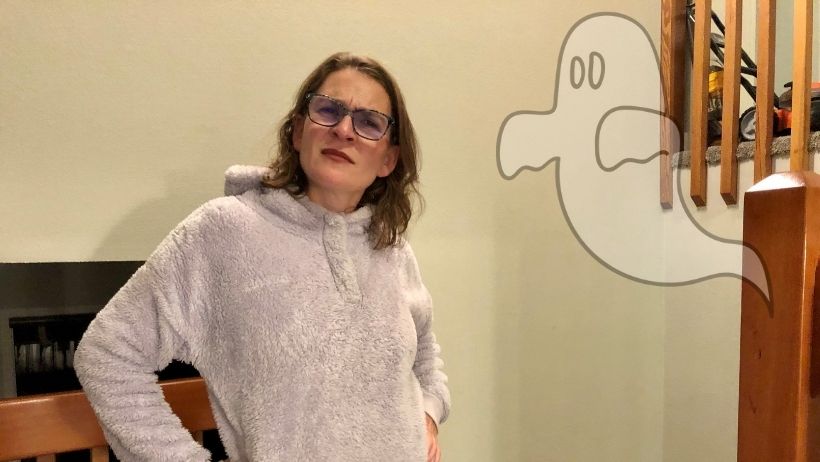Like lots of children, I had an imaginary friend when I was young. In fact, I’ve written about this friend before. His name was Petey, and he was a ghost. This was before I had a sibling, so in those years as an only child, I could be a bit mischievous on occasion. I know, shocking, right? I have a vivid memory of messing with the clean, folded clothes in my dresser drawer and my parents asking me who did it. I answered innocently, “Petey did it.” How could they blame me, perfect little Eve, for the mess? It was the perfect story: this ghost who could not be seen by anyone but me was the ideal scapegoat. Eventually, Petey became the joke of the family when things would be misplaced or accidents would happen. “Just blame Petey.”

While this worked as a laughable family mantra, it’s not exactly a great lesson as we work to create a world of responsibility for actions and deeds. The real lesson is as old as time, and apparent in the Torah. This week we read Parshat Bereshit, the first portion of the Torah. We are wowed with the story of creation, especially the time and care God put into creating each day, each being exactly as God wanted. We learn about the first people and their experience in the Garden of Eden, including how they learned to build, grow, and be together. The Torah continues with the story of Cain and Abel, the first sibling rivalry gone terribly awry, and the very real consequences put into place after each of these events. At the very beginning of the Torah, we’re also introduced to God as the parent, creating life and making sure everything has its own place.
The first few verses of the Torah are focused on God as creator. However, as soon as there is more than one human being on the earth, the blame game begins. It takes only until the third chapter of the Torah before someone starts to look for someone else to blame for their own actions. In chapter 3 the snake goes “in for the kill” on Eve. The serpent convinces her to eat from the banned tree. She does, then Adam does, and the minute they do, God comes out again to find out what happened. Adam is quick to first blame Eve, then he blames God for creating Eve. Eve blames the serpent, and both humans are punished for this violation of trust.
However, this blame game doesn’t end there. A few chapters later Adam and Eve’s children have a fight. Cain kills Abel, and when God comes to ask where his brother is, Cain is quick to respond with “Am I my brother’s keeper?” Once again, refusing to admit guilt or take the blame.
Why does our Torah begin like this? Why is there blame right off the bat? It’s likely because admitting guilt and accepting blame is downright difficult. We don’t like being “in trouble” or feeling like we may have messed up. That’s human. The Torah also begins here because these early chapters are a cautionary tale about how our actions and deeds can influence the behavior of others. Imagine if Eve or Adam had admitted blame. Perhaps they would’ve then set an example for Cain to also own his behavior. If he knew he would be expected to own his actions, perhaps he would not have been so reactive.
In reality, my parents never really let me get away with blaming Petey the Ghost. Similarly, Adam, Eve, and Cain aren’t let off the hook for trying to assign blame elsewhere. As we contemplate new beginnings, let us be aware that our actions have consequences. The more we learn to take responsibility for those actions, the better those consequences become.



